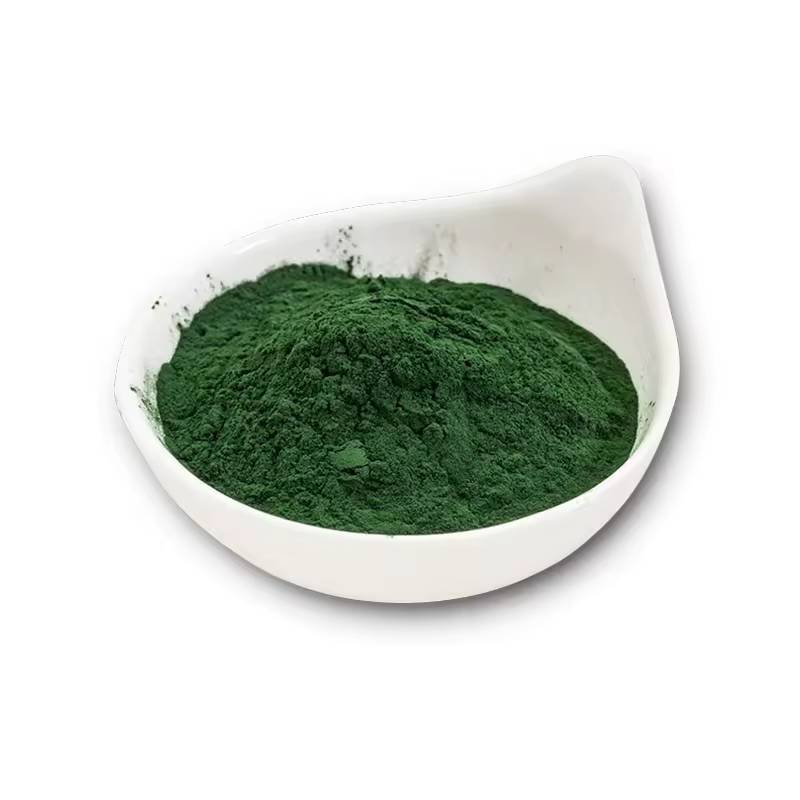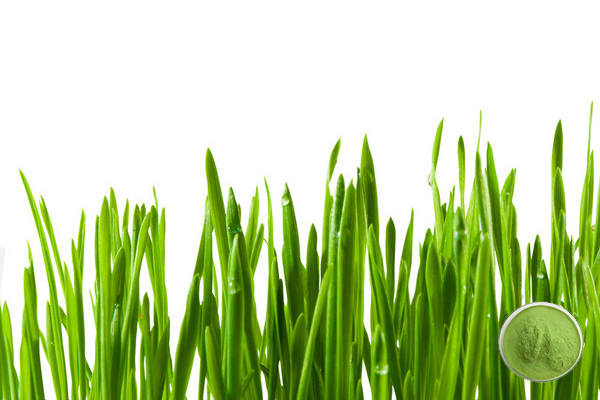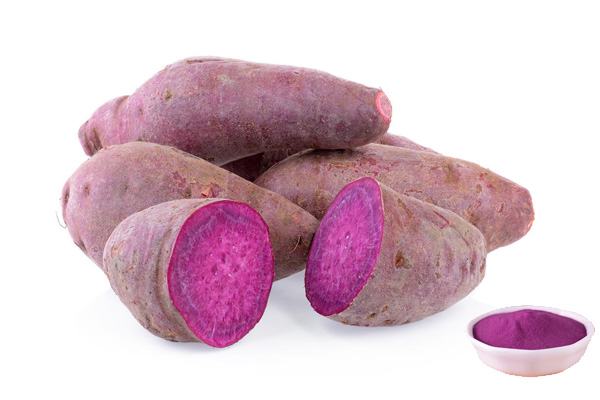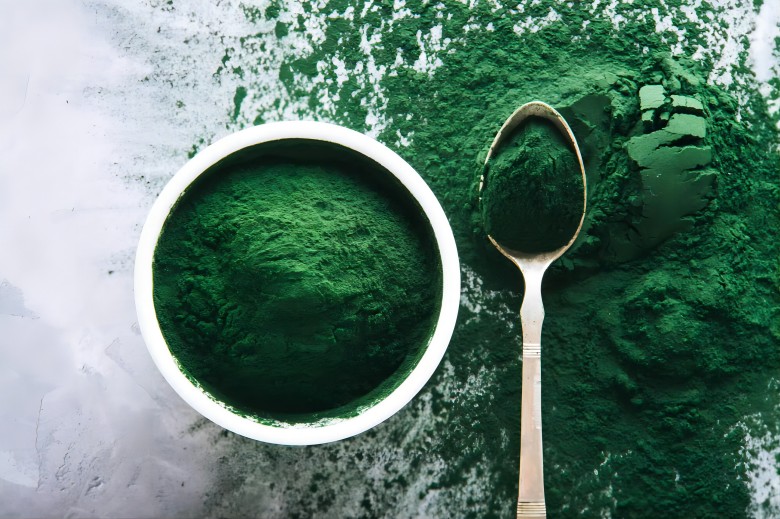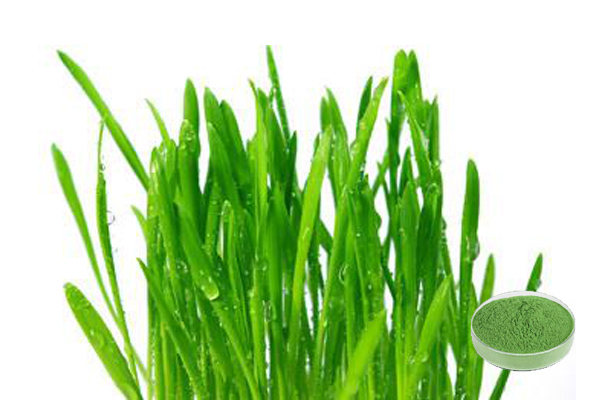Feed Grade Spirulina Powder 55% Protein
Active Ingredients:Protein
Assay:55%
Testing Method:Kjeldahl Determination
Appearance:Dark Green Fine Powder
Pesticide Residue:Comply with (EC) No 396/2005 Standard
- Description
- Data Sheet
- Certificate
-
What is Feed Grade Spirulina Powder?
Spirulina is the most comprehensive and well-balanced green natural food with the most complete nutrition that mankind has ever found in the natural world. Its protein content is as high as 65% or more and contains all kinds of amino acids required by the human body, and the ratio is reasonable, the most suitable for the human body to absorb and utilize, which includes 9 kinds of aminobenzoic acid essential to the human body and cannot be synthesized by the human body, and its content is almost the same as the ideal standard stipulated by the United Nations. It is also rich in a variety of vitamins, minerals, and chlorophyll, and source of blue and other biologically active substances.
Green Spring Technology supplies Feed Grade Spirulina Powder, which is made from pure, non-polluting, high quality algae cultivation base of Spirulina obtusususus, through spray drying, sieving, and sterilization. It is rich in water-soluble protein, EAA (18 kinds), γ-linolenic acid (natural unsaturated fatty acid), β-carotene, vitamins (VB12 content is the highest), superoxide SOD, chlorophyll, and other nutrients. It can enhance the immunity of animal organisms and is a high-level animal feed additive.
Founded in 2000, Green Spring is a leading biotechnology company in China. It produces according to ISO, HACCP, and other quality standards, and its products are all implemented with the highest international industry standards, complying with EU EC396, EU 2023/915 standards, and the highest solvent residue standards. Green Spring has obtained Halal, Kosher, COSMOS, BRC, IFS, FDA, ISO, and many other certifications. Authoritative third party test reports are available.
Specification:
Product Name
Spirulina Powder
Active Ingredients
Protein
Assay
55%
Testing Method
Kjeldahl Determination
Appearance
Dark Green Fine Powder
Pesticide Residue
Comply with (EC) No 396/2005 Standard
Regulation:
It conforms to EU regulations.
Learn More About Our Comprehensive Solutions for Compliant and Consistent Spirulina Extract Ingredients.
Looking for a Quotation?Benefits:
Rich in Nutrients
Spirulina protein accounts for 50% -70% of cell dry weight and has a digestion and absorption rate of over 95%. It is a high-quality source of protein, surpassing meat, eggs, milk powder, grains, and soybeans. At the same time, there is a rich variety of amino acids, rich in all essential amino acids required by the human body, and the composition is reasonable, among which leucine, isoleucine, and valine have the highest content.
Rich in Chlorophyll
Chlorophyll in Spirulina is high in quantity and quality, accounting for 1.1% of the algal body, which is 2-3 times more than most terrestrial plants and 10 times more than common vegetables. The type of chlorophyll contained in Spirulina is mainly chlorophyll a. The molecular structure is very similar to human hemoglobin, which is the direct raw material for the synthesis of human hemoglobin.
Anti-inflammatory
The anti-inflammatory effects of Spirulina are mediated through its ability to block the release of histamine and other inflammatory substances from the immune system. Polyphenolic antioxidants and phycocyanin in algal cells exert their anti-inflammatory and antioxidant effects by integrating the NrF2 and NF-kB regulatory pathways; lipid extracts and alkanes also inhibit the expression and secretion of pro-inflammatory factors (TNF-alpha, IL-1beta, and IL-6) by suppressing the NF-kB pathway. A clinical trial showed that allergic rhinitis treated with spirulina significantly improves its symptoms, including improvement of runny nose, sneezing, nasal congestion, and itchy nose.
Immunity Regulation
Spirulina has a strong enhancing effect on the human immune system. Studies in different animal models, such as mice, chickens, and fish, have shown that Spirulina can improve the function of immune cells and immune organs, enhance the ability to function normally under the environment of infectious agents and toxins, and, at the same time, promote the value-added of bone marrow cells and enhance the production of IL-1 and antibodies by splenocytes cultured in vitro. Among them, Spirulina polysaccharides had a significant effect on increasing the number of antibody-producing cells and NK cell activity.
Microbiological Regulatory Activity
The microbiomodulatory activity of Spirulina prevents ecological disorders. The antimicrobial activity of Spirulina, on the one hand, protects the host from harmful bacterial infections, avoiding inflammatory bowel disease and metabolic and immune disorders, and on the other hand, promotes the growth of probiotic bacteria, thus restoring the normal microbial balance. Spirulina inhibits the growth of some Gram-negative bacteria (Escherichia coli, Pseudomonas aeruginosa, Proteus vulgaris) and Gram-positive bacteria (Staphylococcus aureus, Bacillus cereus) and produces extracellular metabolites with antimicrobial activity, which are particularly resistant to Streptococcus intestinalis, Staphylococcus epidermidis, Candida albicans, Staphylococcus aureus, and Escherichia coli.
On the other hand, Spirulina has a promoting effect on the growth and preservation of Lactococcus, Bifidobacterium, Lactobacillus acidophilus, Lactobacillus bulgaricus, Lactobacillus casei, and Streptococcus thermophilus. In vivo application studies also showed that microbiota composition, metabolism and immune disorders in the gastrointestinal tract were significantly altered in mice consuming Spirulina. Therefore, the combination application of Spirulina and probiotics has stronger immune and intestinal health regulating function than probiotics alone. It can be seen that Spirulina has an important role in improving animal and human health, changing the composition of intestinal flora, and promoting the growth of beneficial flora.
Applications:
For Feed Product:
Spirulina powder can be used for high-grade feed additives in addition to direct consumption as food or additives. Using Spirulina with feed to feed shrimp seedlings, and young abalone, compared with feeding with conventional feed, the survival rate of seedlings greatly improved.
In Cosmetics:
The polysaccharides and bioactive substances in Spirulina can reduce the formation of lipofuscin in tissues by scavenging free radicals in human body and reducing lipid peroxidation, thus reducing pigmentation, wrinkles, etc. It has the effects of moisturising, anti-aging and anti-ultraviolet rays. And spirulina will not stimulate the skin and produce allergic reactions, is a good cosmetic beauty products.
In the Food Field:
Spirulina powder is nutritious, rich in protein and a variety of amino acids, and has been used in a wide range of foods. Algae of the genus Spirulina have been widely used in the manufacture of pasta. The Spirulina-added products are characterized by enhanced nutritional, organoleptic, and therapeutic benefits compared to pasta without Spirulina.
-
Download
Feed Grade Spirulina Powder COA


 English
English French
French Spanish
Spanish Russian
Russian Korean
Korean Japanese
Japanese



